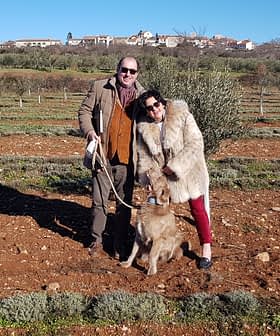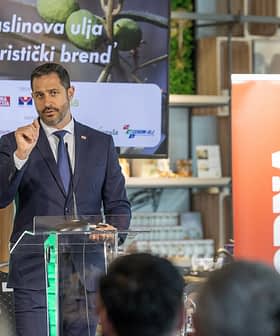Meet the Award-Winning Croatian Producer Who Sea-Ages His Olive Oil
Winemakers have been aging their wines under the sea for years. Denis Plastić decided to try it with olive oil and the first results are promising
 Denis Plastić
Denis Plastić Maturing and aging wines in the sea is nothing new. Underwater wine cellars have been spreading worldwide for the last 10 years and are no longer a novelty.
However, aging extra virgin olive oil underwater is new. After being produced on land, the oil is aged for six months in the sea.
My sea oil has not lost anything even after 14 months. Neither in structure nor taste. It retained its fruitiness and spiciness as if it had been processed yesterday.
“If the seabed suits the wine, it won’t bother the oil either,” thought Denis Plastić, an award-winning Croatian winemaker and olive oil producer.
He decided on the experiment, the first of its kind in Croatia (and possibly in the world) because he knew darkness and the appropriate temperature help preserve extra virgin olive oil. Coral Wine, an underwater wine cellar in the Adriatic Sea near Plastić’s olive grove, had all these benefits.
See Also:NYIOOC Sample Vault real-time conditionsMarko Dušević, the owner of the Adriatic Shell Company, designed the cellar 10 years ago. He also owns a mussel and oyster farm near the island of Pag, known for its salt pans, wines and sheep cheeses.
“It may also become famous for its olive oil from the sea,” Plastić added with a characteristic smile.
Plastić has been aging his wines for 10 years under the sea. Coral Wine provides aging services to winemakers, and Plastić is the first to try it with olive oil.
In the underwater basement, between Pag and Vir, a small resort town on the mainland peninsula, divers lowered 120 of his half-liter bottles to a depth of 30 meters into one of the eight cages.
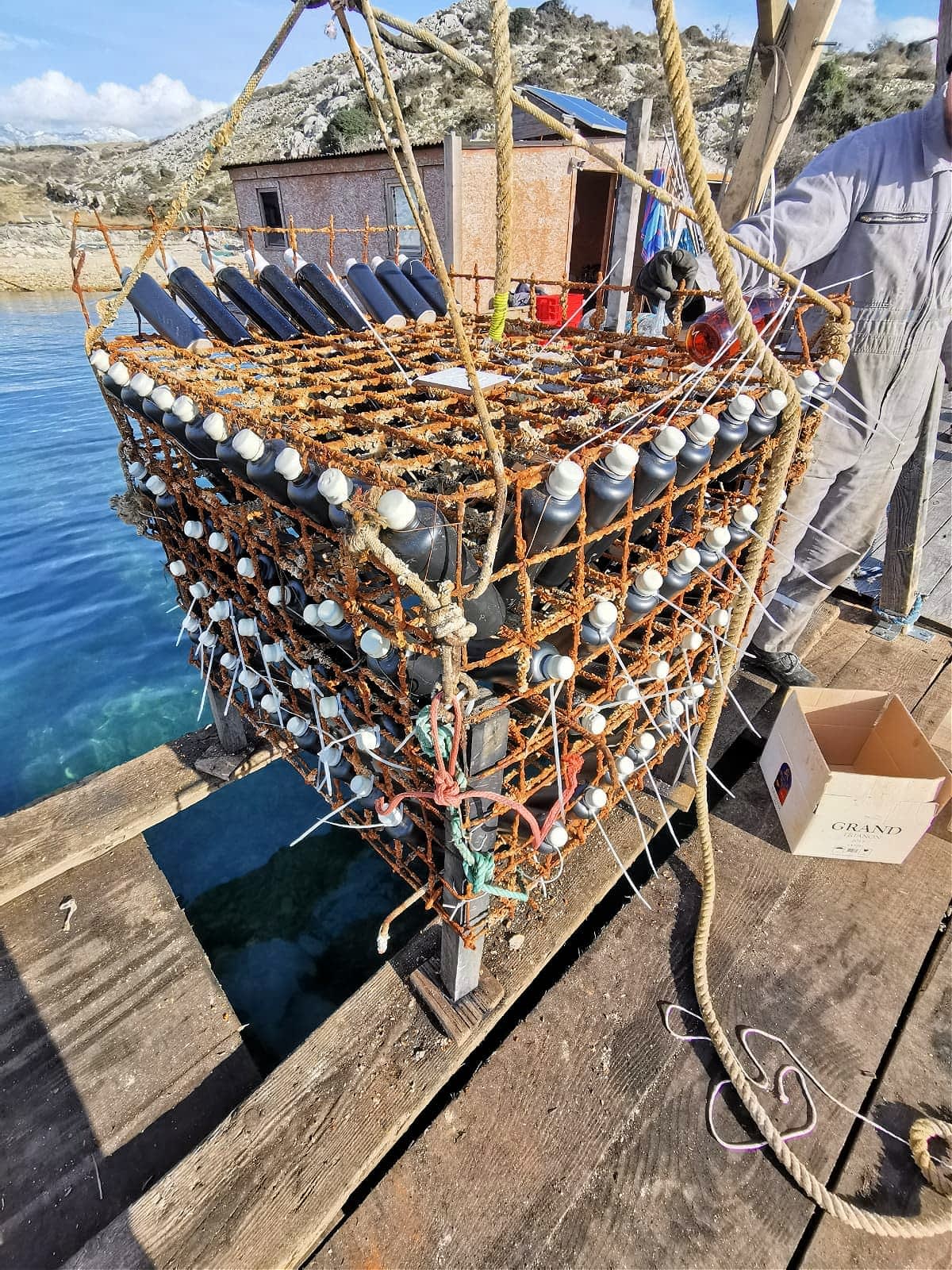
The bottles are made of ceramic and painted black on the outside. They contain oil from the Oblica, Coratina and Leccino varieties harvested in 2020 at the time of optimal ripeness and processed the same day.
The oil is stored in stainless steel containers. After two overflows, in late November and December, the oil was poured into the dark bottles in mid-January 2021.
These were under the sea for a full six months, exposed to the sea currents, which carry algae and other marine organisms. They hold on to the bottles so that each one, covered with sea “scars” and various overgrowths, looks like a little masterpiece of nature.
“They look unique,” said Plastić, who was very satisfied when the divers delivered him aged bottles.
As soon as he arrived home in Nadin, about 50 kilometers southeast of Vir, Plastić eagerly tasted the contents of his natural masterpieces.
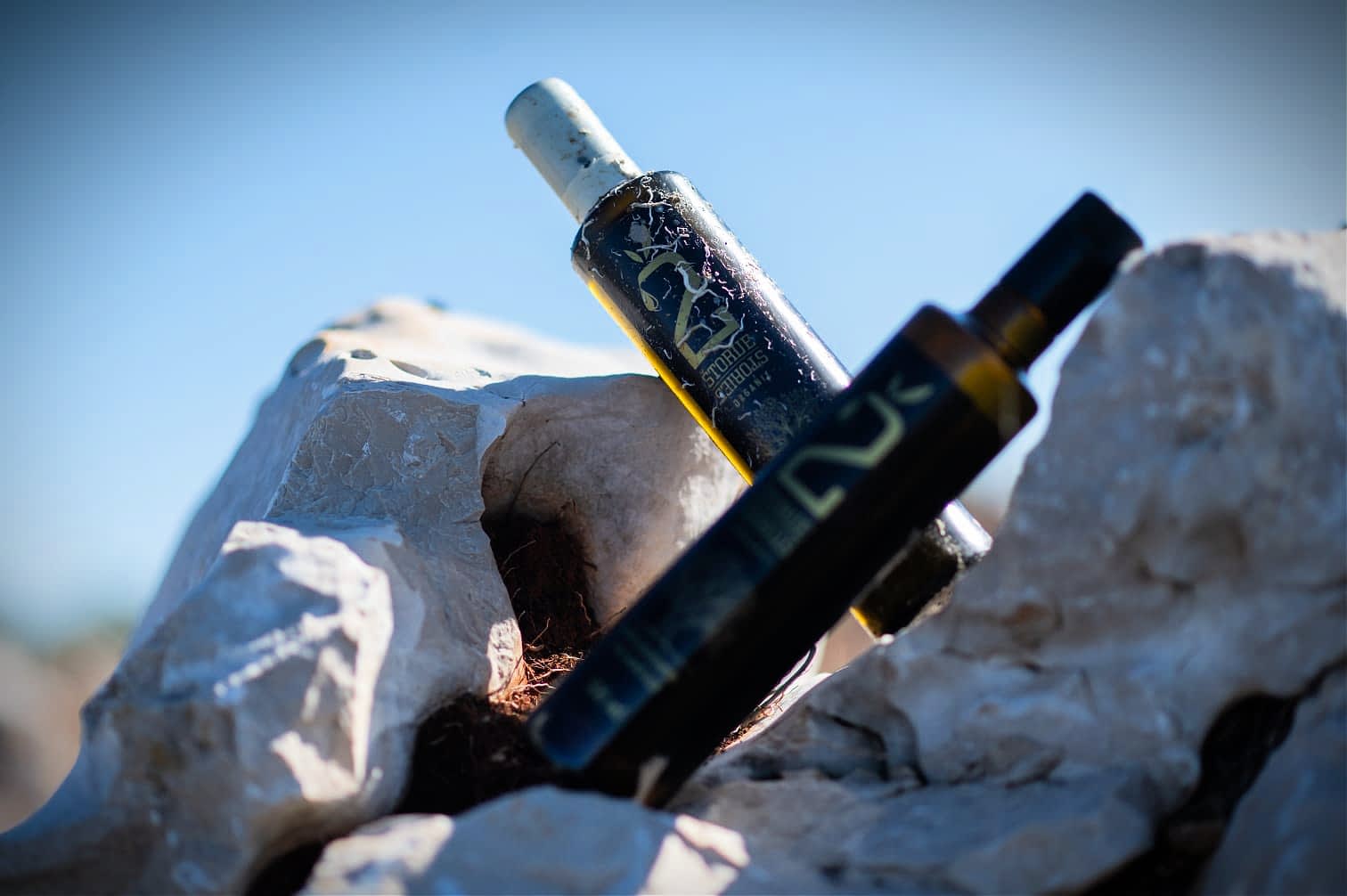
“It has a good texture, and additional bitterness has developed,” he said of his first impression after tasting the oil. “It is spicier than the same oil from the family cellar.”
The experiment’s true purpose was to determine whether immersion and aging in the sea would prolong the shelf life of olive oil.
“My sea oil has not lost anything even after 14 months,” Plastić claimed. “Neither in structure nor taste. It retained its fruitiness and spiciness as if it had been processed yesterday.”
His experiment aroused interest from the Institute of Public Health in Zadar, which includes a modern laboratory for chemical analysis and a panel of certified olive oil tasters.
“The experiment is interesting,” said Benito Pucar, a food technologist and head of the health ecology and environmental protection of the Zadar Public Health Institute.
“We are ready to participate by analyzing the new oil from the last harvest that will be aged in the sea for two, four and six months to determine the maximum estimated shelf life at sea,” he added.
At the same time, the researchers will analyze the quality of the same oil (after four, nine, 13 and 18 months) stored in the family cellar for an estimated shelf life of 18 months.
“The comparative analysis will best show whether aging in the sea affects the quality of olive oil,” Pucar said.
The story of Plastić’s family farm began in 2012 when he started working with Dolina Maslina and Bovan, local producers owned by his two brothers-in-law, Mirko Krtalić and Neven Klinac.
Together, they rented 100 hectares of karst landscape that had been neglected and left uncultivated for years not far from Nadin, one of the most ecological places in Croatia.
A total of 33,000 olive trees were planted here in an ideal area for olive growing and has hosted trees since the time of Liburnia and the Ancient Romans.
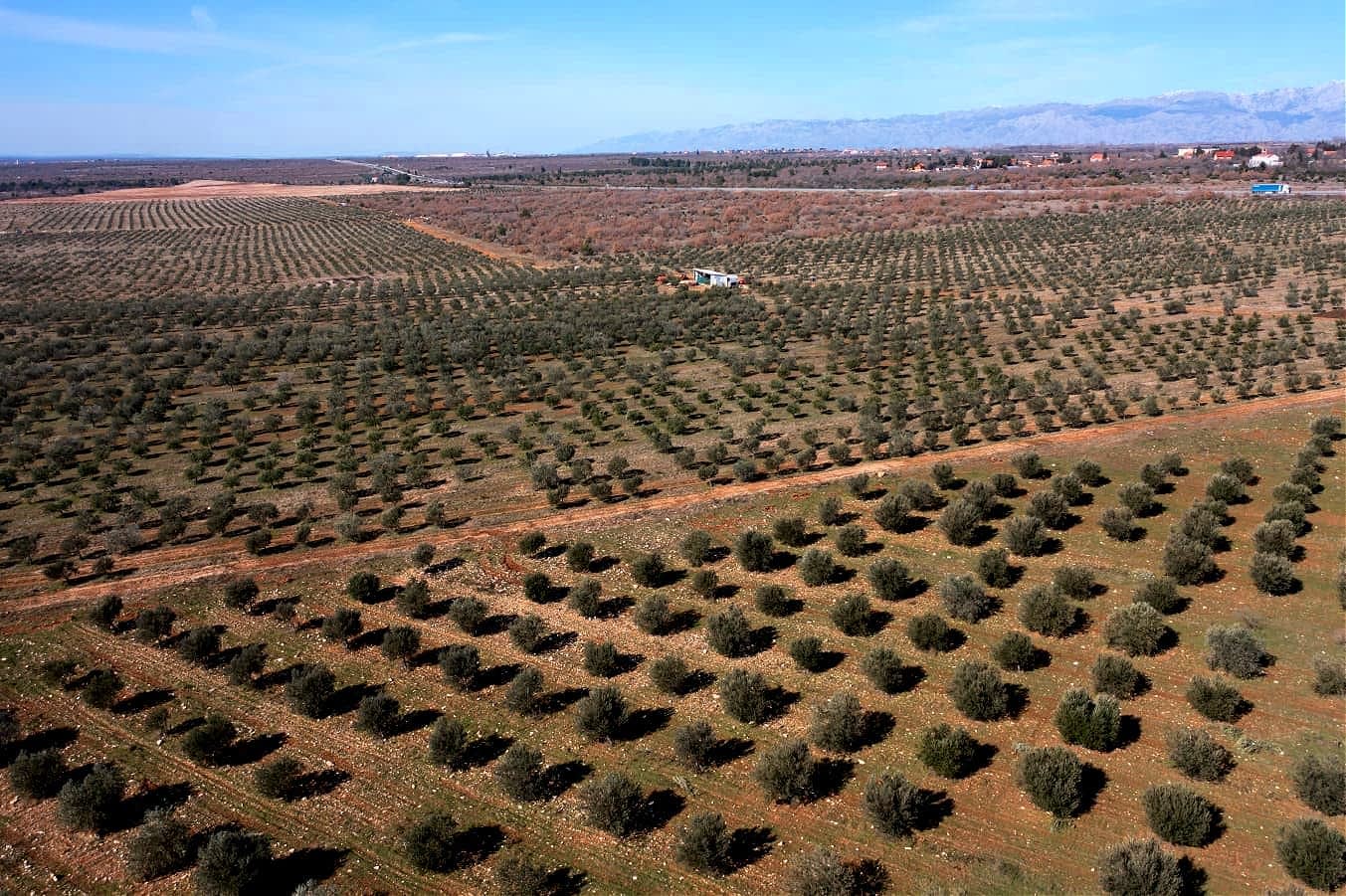
Before planting, the three invested enormous effort and energy in clearing old groves and macchia, extracting roots, digging and plowing, removing large stones and crushing the entire surface.
Only then was it possible to plant olives according to a special plan and carefully selected varieties. The majority are domestic Oblica, Istarska bjelica, Buža, Rožinjola and Lastovka olive, but they also grow the Italian varietals, Coratina, Leccino, Pendolino, Cipressino and Ascolana.
“We have selected varieties that are at the forefront of the most important properties of extra virgin olive oil – fruitiness, bitterness and spiciness,” Plastić said.
The olive groves are at an altitude of 160 to 200 meters, where the sea and mountain air from Velebit mix. The days are warm, and the nights are cold, which affects the quality and accumulation of dry matter in the fruit.
Fresh air is constantly flowing. The grove receives the bora from the north, a cold and strong northeasterly winter wind. The breeze is a mistral on the seaside, a cold and dry northerly wind. Both of these significantly reduce the possibility of attacks by diseases and pests.
“We don’t have the Peacock Spot at all, which is a big problem elsewhere,” Plastić said.
He and other olive growers in the area rarely spray their olives. When they do, they use only the means allowed in organic agriculture.
“From the beginning, our production is based on the principles of unique olive oil: virgin soil, indigenous varieties and organic agriculture,” said Valentin Krtalić, a young agronomist who took over the management of Dolina Maslina.
Fruits are picked by hand and processed using modern cold processing technology. The oil is stored in stainless steel tanks and poured into dark ceramic half-liter bottles.
“The most important thing is that the product is ok,” Plastić said. “We have feedback, and none of the customers has any negative objections.”
2Storije, his Oblica, Leccino and Coratina blend, has been awarded at various competitions, including the 2021 NYIOOC World Olive Oil Competition, where it received a Gold Award.
“Being the best at the largest, most prestigious olive oil competition in the world is the dream of every producer,” Plastić said. Dolina Maslina also earned a Gold Award for its Istrian Bjelica monovarietal.
Plastić and his family are also hoping for success this year since the oil from the last harvest is also excellent.
“Maybe better than last year,” Plastić said.
He is proud that he and other family members are the founders of a cooperative. In the groves, they join forces and learn from each other. “Clean bill, long love” is the Dalmatian ethos of working together.
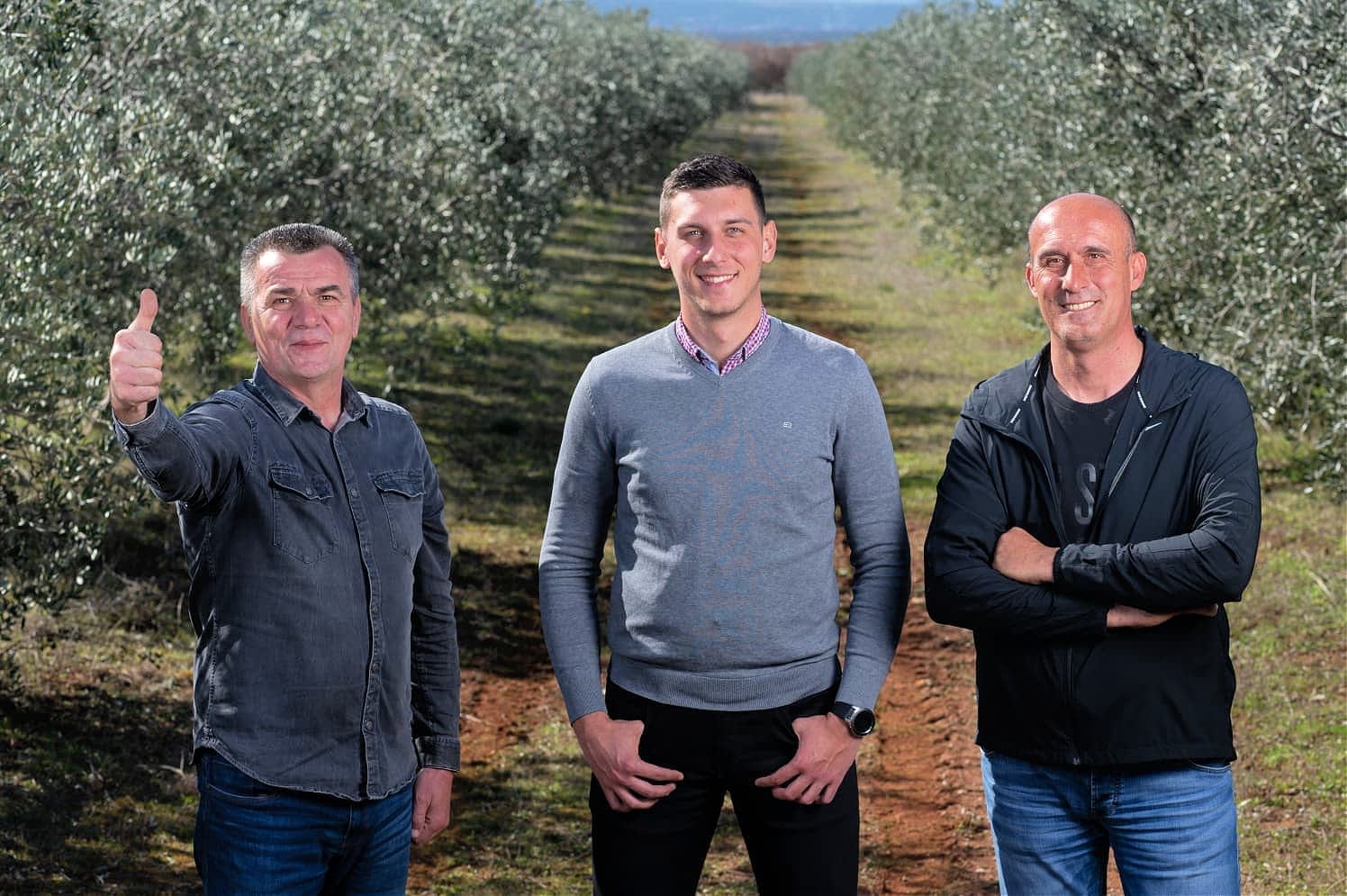
Neven Klinac, Valentin Krtalić and Denis Plastić
Their example is also encouraging others to engage in olive growing. A new plantation was built on 30 hectares of a separate family grove. It was incorporated as part of Dolina Maslina, bringing together seven families of veterans of the Croatian War of Independence.
OPG Plastić, Dolina Maslina, Bovan and Veterans comprise about 50 family members, including 35 children.
Some children of the companies’ founders have already grown up and become agronomists and other professionals, but all of them are connected by olives.
“Our mission is to produce top-quality, ecological, autochthonous olive oil that we create according to the millennial Croatian tradition,” Valentin said.
All that remains is for the experiment to succeed so that the liquid gold from Nadin, aged in the Adriatic Sea and decorated with coral, gets into the hands of discerning consumers.




